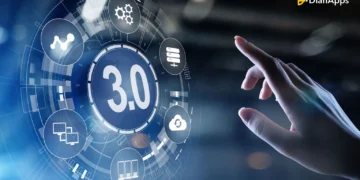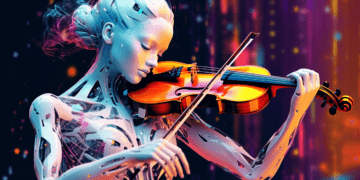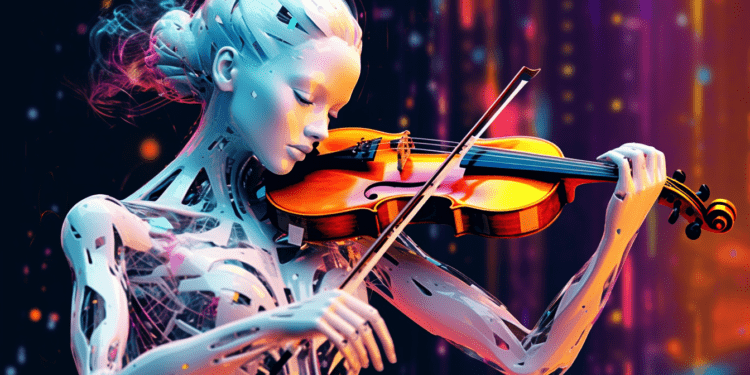In an era where technology reshapes every facet of life, the music industry stands on the brink of a significant transformation. “Revolutionizing Rhythms” isn’t just a phrase; it’s the reality of how Artificial Intelligence (AI) and Web 3.0 are rewriting the rules of music creation, distribution, and consumption. With the advent of blockchain, the promise of decentralized platforms, and the innovative use of AI, the industry is evolving into a more artist-centric and fan-engaging space.
As dehfi.com suggests, Web 3.0 offers the promise of direct connections, breaking down the barriers between artists and audiences. Meanwhile, AI’s role in music, once viewed with skepticism, is now being embraced for its ability to enhance creativity and personalization. The question of whether AI and Web 3.0 are friends or foes to the music industry is leading to big questions that demand answers.
The “Revolutionizing Rhythms” of the music industry is not just about adopting new technologies but about a fundamental shift in the industry’s structure. As blockchain-council.org discusses, Web 3.0 is empowering artists like never before, giving them control over their work and a fairer share of the revenue. However, this journey is not without its hurdles. The path to a fully decentralized and AI-integrated music industry is complex and challenging, with issues of rights management, accessibility, and the balance of power needing careful navigation.

In this exploration of “Revolutionizing Rhythms,” we delve into how AI and Web 3.0 are not just changing the music landscape but are setting the stage for a future where the industry is more transparent, equitable, and innovative. From the rise of music NFTs to AI-driven music production, the symphony of the future is being composed today, and it promises a melody that resonates with the aspirations of artists and the desires of the global audience. Join us on this journey to discover how the music you love is taking on a new life in the digital age.
The Dawn of a New Era in Music
The music industry is on the cusp of a transformative era, heralded by the integration of AI and Web 3.0 technologies. This “Revolutionizing Rhythms” signifies more than a technological upgrade; it represents a paradigm shift in how music is created, shared, and enjoyed.
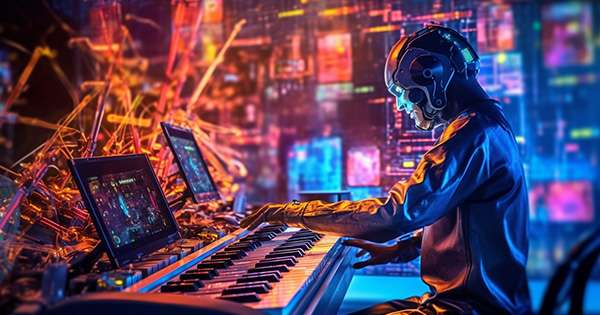
- Unveiling the “Revolutionizing Rhythms”** The concept of “Revolutionizing Rhythms” goes beyond mere buzzwords. It’s about the convergence of AI’s analytical power with Web 3.0’s decentralized ethos, culminating in a music industry that is more inclusive, innovative, and disruptive. As per insights from Dehfi.com, this revolution is not just about changing how music is made or consumed; it’s about redefining the very fabric of the music industry’s structure and economics.
- ### The Historical Context of Music and Technology**
The marriage between music and technology is not a new phenomenon. From the phonograph to streaming services, each technological leap has left an indelible mark on the music industry. Today’s AI and Web 3.0 revolution is poised to be the next major leap, as discussed in Blockchain Council’s article, transforming not just the industry’s structure but also its soul, making it a more artist-centric and fan-empowering ecosystem.
The Impact of AI on Music Creation
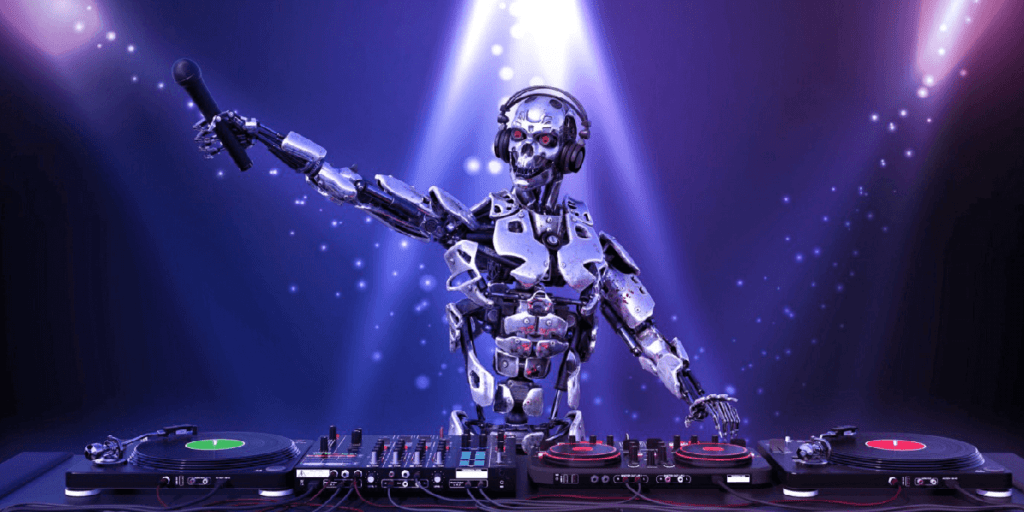
Artificial Intelligence is reshaping the landscape of music creation, offering tools and possibilities that were once unimaginable. By analyzing patterns and data, AI is not just an aid but a revolutionary force, introducing a new era of composition and sound design.
- How AI is Transforming Music Production** AI’s impact on music production is profound, offering a blend of innovation and efficiency previously unattainable. Tools like generative algorithms are not only automating certain aspects of production but are also inspiring artists to explore new realms of creativity. According to insights from forbes.com, these AI-driven platforms are not replacing human creativity but augmenting it, enabling artists to translate their wildest imaginations into sound.
- ### Generative AI: The Future of Musical Creativity**
Generative AI stands at the forefront of this creative revolution, composing music that resonates with human emotions and complexities. As coindesk.com explores, this isn’t about creating a robotic mimicry of music but about birthing new genres and sounds that expand the musical spectrum. Generative AI is not just a tool but a collaborator, opening doors to uncharted musical territories and redefining the essence of music creation.
Web 3.0: Redefining Music Distribution and Ownership

Web 3.0 is revolutionizing the music industry by redefining the very concepts of distribution and ownership. It’s not just a technological leap but a cultural shift towards a more democratic and equitable system where artists and fans alike have greater control and transparency.
- The Role of Blockchain in Music Rights Management** Blockchain technology is at the heart of this transformation, offering an immutable and transparent ledger for music rights management. With blockchain, artists can maintain ownership and control over their work, while fans can ensure their support directly benefits the creators. As detailed by nftically.com, this technology is not just changing how rights are managed; it’s empowering artists and ensuring that they are fairly compensated for their creativity and hard work.
- ### Decentralizing Music: A New Paradigm for Artists and Fans**
Decentralization is more than a buzzword in the context of Web 3.0; it’s a new paradigm that challenges the traditional music industry model. By decentralizing music distribution and ownership, artists gain unprecedented autonomy and connection with their audience. This shift is not merely about technology but about reimagining the music landscape as a more inclusive and equitable space. Polygon.technology discusses how this decentralization extends beyond just ownership to creating direct artist-to-fan communities and reshaping the way we think about music as a shared cultural experience.
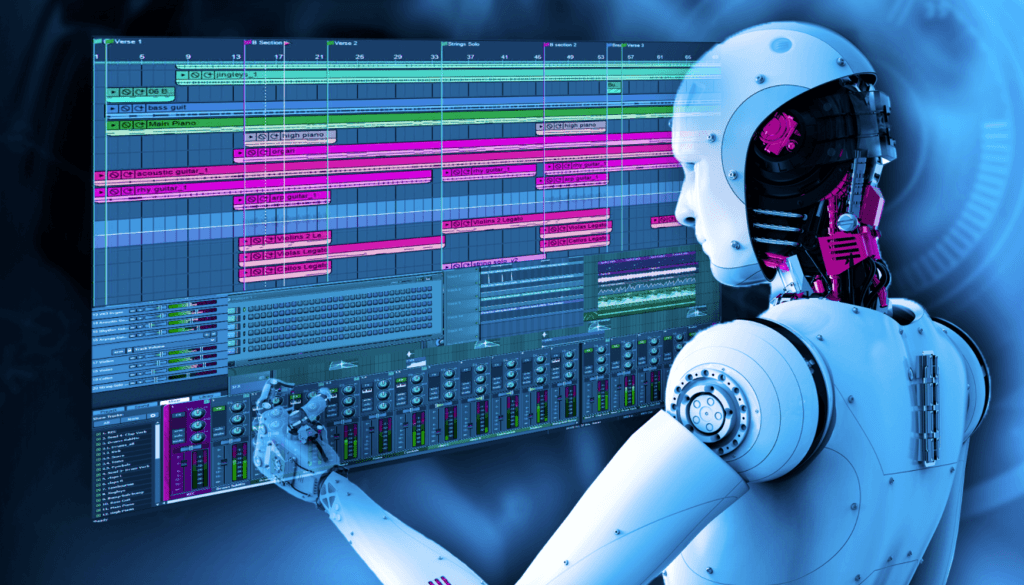
The Symbiosis of AI and Web 3.0 in the Music Industry
The fusion of AI and Web 3.0 is creating a symbiotic relationship that amplifies the capabilities of each technology, fostering a music industry that’s more innovative, personalized, and user-centric. This synergy is not just transforming the industry’s infrastructure but also redefining the creative process and the consumer experience.
- Enhancing User Experience with AI-Powered Platforms** AI-powered platforms are revolutionizing the user experience by providing personalized recommendations, enhancing discovery, and creating immersive listening experiences. These platforms learn from user preferences to deliver content that resonates on a deeper level. As highlighted by coindesk.com, AI is not just a tool for creators but also a means to connect listeners with music that moves and inspires them, transforming passive listening into an active, engaging journey.
- ### Web 3.0 and AI: A Duo Empowering Musicians and Listeners**
The combination of Web 3.0 and AI is empowering both musicians and listeners in unprecedented ways. For artists, this duo means greater creative freedom, more control over their work, and fairer compensation. For listeners, it means access to a more diverse range of music and a closer connection to the creators they love. Polygon.technology explores how this partnership is not just reshaping the industry’s economy but also fostering a more vibrant, dynamic, and inclusive music ecosystem.
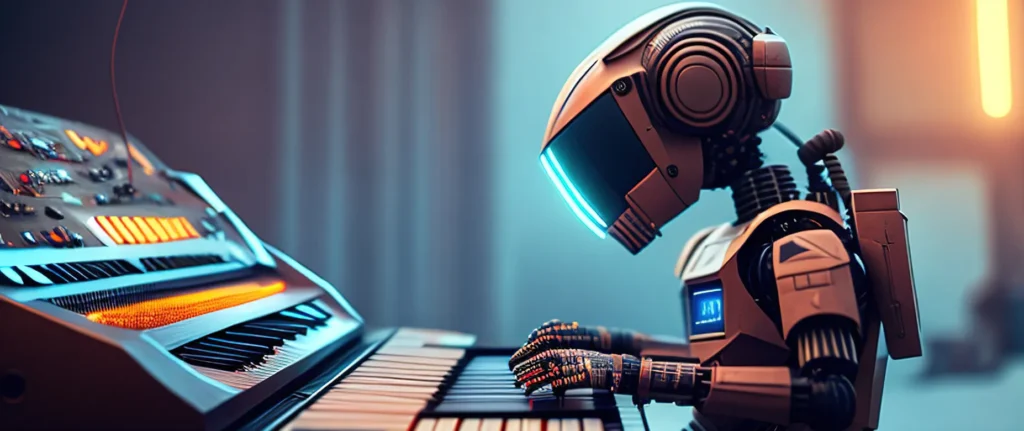
Challenges and Opportunities Ahead
While the fusion of AI and Web 3.0 presents a groundbreaking shift in the music industry, it also brings forth a spectrum of challenges and opportunities. Navigating this new terrain requires understanding the complexities and potential pitfalls while embracing the vast possibilities for innovation and growth.
- Navigating the New Landscape: Issues and Solutions** The journey towards a fully integrated AI and Web 3.0 music industry is fraught with challenges, including rights management, ethical considerations, and the digital divide. Addressing these issues requires innovative solutions and collaborative efforts. For instance, blockchain-council.org discusses how blockchain can solve rights management issues but also highlights the need for industry-wide standards and ethical frameworks to guide AI’s role in music creation.
- ### The Future Foreseen: What’s Next for AI and Web 3.0 in Music?**
Despite the challenges, the potential for AI and Web 3.0 in reshaping the music industry is immense. The future might see more decentralized platforms, AI-driven personalization, and innovative monetization models. As forbes.com suggests, staying ahead of the curve will require continual adaptation and openness to new ideas. The industry must be prepared to embrace change, experiment with new technologies, and foster an environment where innovation thrives.
Conclusion: Harmonizing the Future of Music
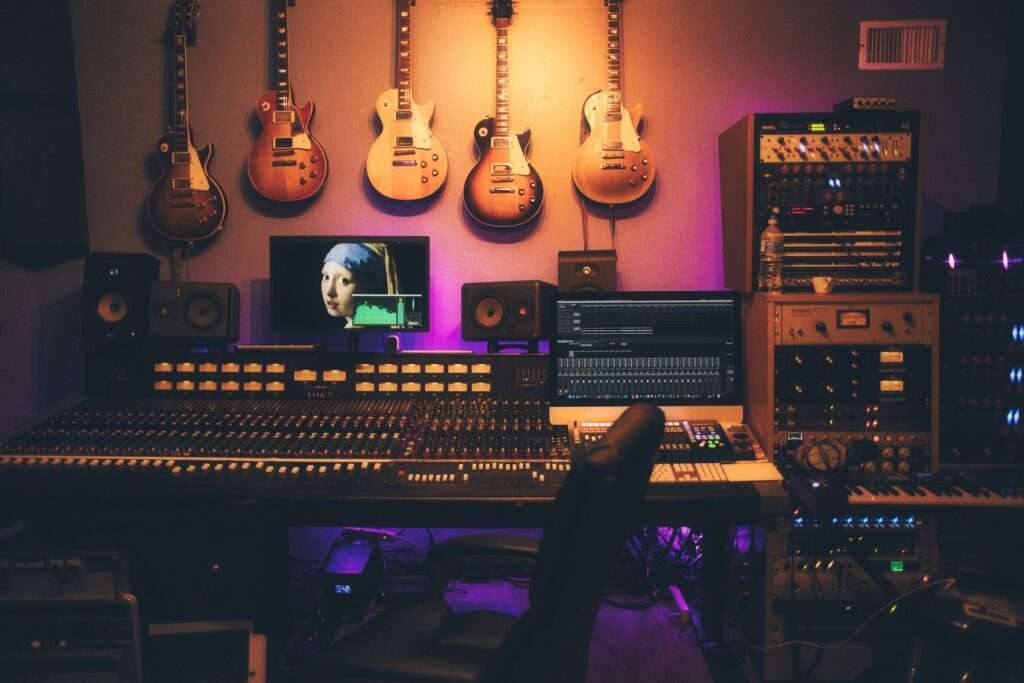
As we reflect on the “Revolutionizing Rhythms” brought about by AI and Web 3.0, it’s clear that the music industry stands on the precipice of a new dawn. This era is not just about technological innovation but about a cultural shift towards more equitable, creative, and immersive musical experiences. The journey ahead is filled with both challenges and opportunities, but one thing remains certain: the landscape of music is changing, and it promises a more harmonious future for artists and fans alike.
The fusion of AI and Web 3.0 is crafting a world where music transcends traditional boundaries, fostering a global community united by the universal language of rhythm and melody. As we embrace this new era, the industry is poised to deliver experiences that are more personalized, empowering, and engaging than ever before.
Consider reading best of our articles:
For those in search of deeper insights and broader perspectives, you’re in the right place. Explore our curated list of must-read articles to continue your journey into the fascinating world of technological innovation and cultural transformation:
- The Sunlit Path: Can Solar Energy Replace Fossil Fuels?
- The Future of Virtual Reality and the Role of the Metaverse
- The Economic Powerhouse in Your Pocket: How Smartphones Fuel the Economy
- The Curse of Talent: Why Artists Often Grapple with Depression
As we look to the future, let’s continue to explore, innovate, and appreciate the myriad ways technology and artistry intertwine to redefine our world. The revolution in rhythms is just beginning, and its melody will resonate for generations to come.








